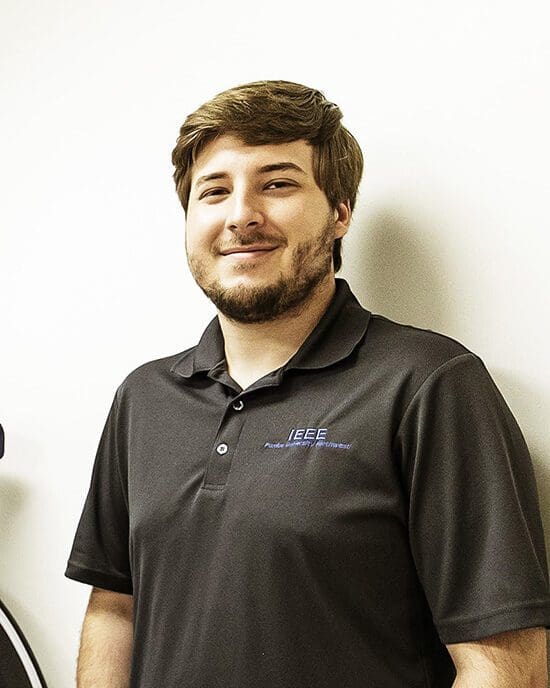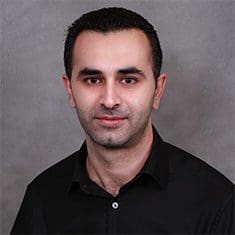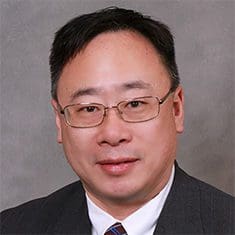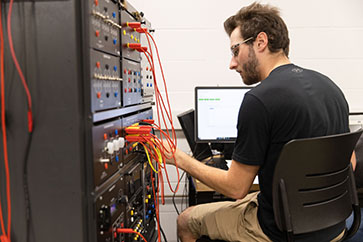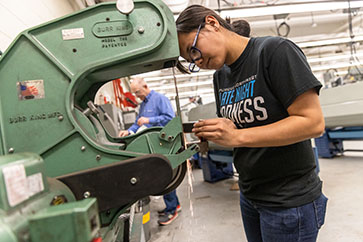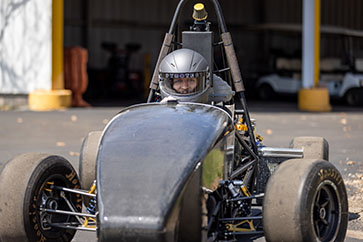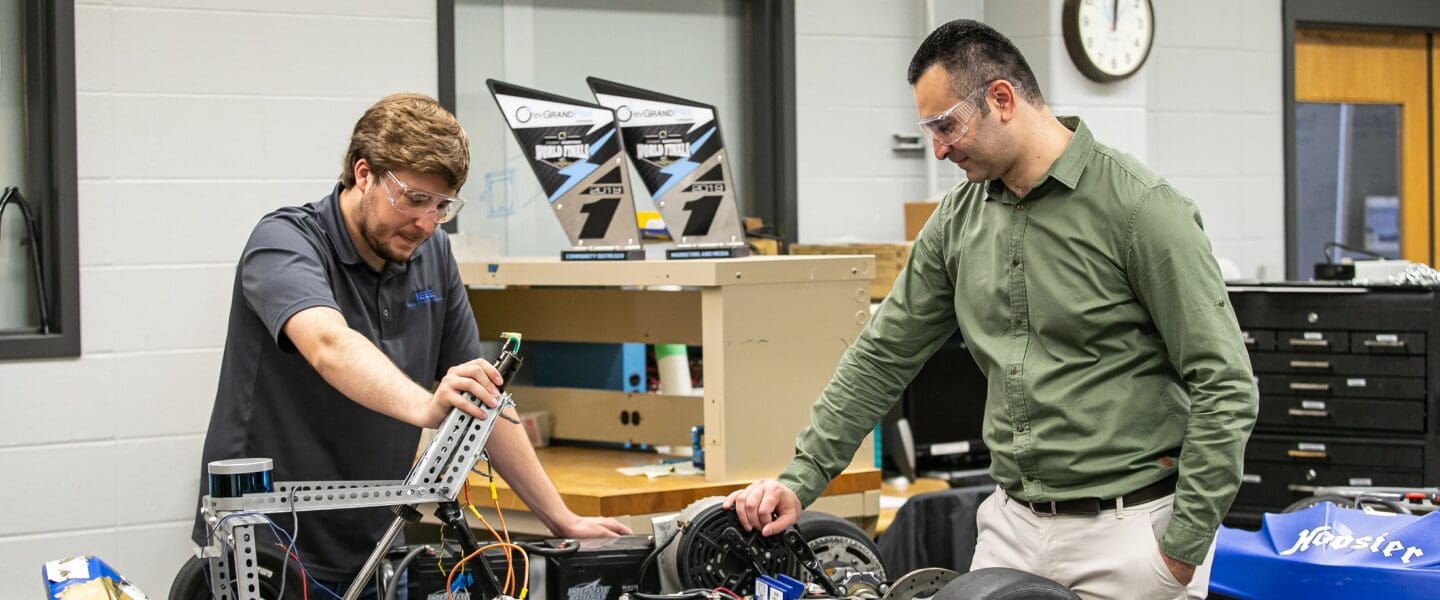
Bachelor's Degree in Electrical Engineering
Bachelor of Science in Electrical Engineering
Request Information
Electrical Engineering Degree Program Overview
Electricity powers our lives, and anything with an electrical component was designed by electrical engineers.
Through the application of physics, math and programming, electrical engineers develop systems that control, monitor and communicate with everything around us. Areas of electrical engineering include computers, control systems, communication systems, signal processing, microelectronics and power/energy systems.
Purdue University Northwest’s BSEE degree program at the School of Engineering fulfills the educational requirements for PE licensure in Indiana and all states of the US.
Department of Electrical and Computer Engineering
In addition to extensive technical training, you’ll learn project management as well as written and oral communication skills essential for the engineering profession.
Our vibrant community is home to several active engineering student organizations and our students compete in national innovation competitions.
You can also earn baccalaureate and master’s engineering degrees within five years with our electrical engineering 4+1 program.
Electrical Engineering Major Curriculum
As an electrical engineering student, you’ll take a balance of general education courses, College of Engineering and Sciences core courses and courses in advanced mathematics and electrical theory. You’ll also get hands-on lab experience in all aspects of the discipline, including circuitry, mechanics, programming and thermodynamics.
Learn the fundamentals in calculus and physics courses while exploring the foundational concepts of engineering.
Sample Courses
- ENGR 186000 – First Year Seminar for Engineers
- ENGR 19000 – Elementary Engineering Design
- MA 16300 – Integrated Calculus Analysis Geometry I
Discover electrical engineering concepts such as circuit analysis, digital logic design and analog/digital electronics as well as integrated circuits.
Electrical Engineering Course of Study
Sample Courses
- ECE 20100 – Linear Circuit Analysis I
- ECE 27500 – Analog and Digital Electronics
- ECE 27001 – Introduction to Digital System Design
Engage in advanced math, technical writing and project management.
Electrical Engineering Course of Study
Sample Courses
- MA 26500 – Linear Algebra
- ENGL 30700 – Written and Oral Communication for Engineers
- ECE 31200 – Engineering Economics and Project Management
Take electives while you complete a two-semester, team-based senior-design project.
Electrical Engineering Course of Study
Sample Courses
- ECE 42900 – Senior Engineering Design
- IECE 43900 – Senior Engineering Design II
- ECE 30100 – Signals and Systems
Electrical Engineering Degree Program Highlights
The engineering programs at PNW are ranked highly among comprehensive universities by US News and World Report. Class sizes are small, labs are state-of-the-art and all faculty members have Ph.D. degrees in their areas of instruction.
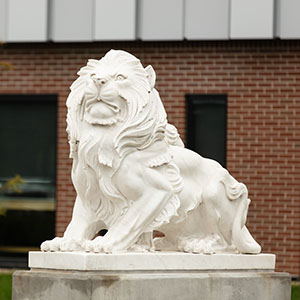

Electrical Engineering Degree Program Outcomes
As a graduate of this program, you’ll be able to:
- Identify, formulate and solve engineering problems
- Use skills and tools necessary for engineering practice
- Design and conduct experiments; analyze data
- Design systems or processes within realistic constraints
- Recognize ethical and professional responsibilities
- Understand the impact of engineering in economic, environmental and societal contexts
Electrical Engineering Degree Program Career Paths
A degree in electrical engineering opens up a world of opportunities in a wide range of industries, including:
- Scientific research and development
- Electrical component manufacturing
- Power generation, distribution and transmission
Electrical Engineering Degree Program Beyond the Classroom
We know that learning happens everywhere, so we encourage you to supplement your studies in organizations such as:
Electrical Engineering Degree Program Employers
Our alumni work with some of the most innovative organizations across the region and around the world, including:
- NIPSCO
- BP
- ArcelorMittal
Electrical Engineering Degree Program Scholarships
Funding opportunities available to Electrical Engineering students include:
- Undergraduate Admissions Merit Scholarships
- Presnak Engineering Scholarship
- Women in Engineering Scholarship
Electrical Engineering Degree Program Accreditation
Purdue University Northwest’s Bachelor of Science program in Electrical Engineering is accredited by the Engineering Accreditation Commission of ABET, https://www.abet.org, under the General Criteria and the Electrical, Computer, Communications, Telecommunication(s) and Similarly Named Engineering Programs Criteria.
Electrical Engineering Degree Program Licensure
As an ABET-accredited engineering program, PNW’s program for the Bachelor of Science in Electrical Engineering at the School of Engineering fulfills the educational requirements for PE licensure in Indiana and all states of the US.
Meet the Faculty
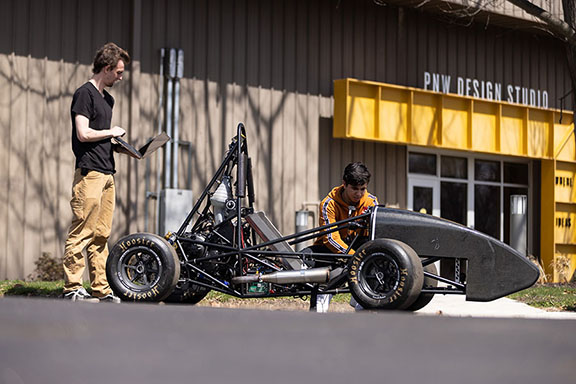
Earn a Bachelor's Degree in Electrical Engineering at PNW
Purdue University Northwest’s electrical engineering degree program provides you with the skills needed for career opportunities and problem solving skills in every area.
To see how a Bachelor’s Degree in electrical engineering from PNW opens doors, from corporate boardrooms to non-profit leadership, take the next step today!




